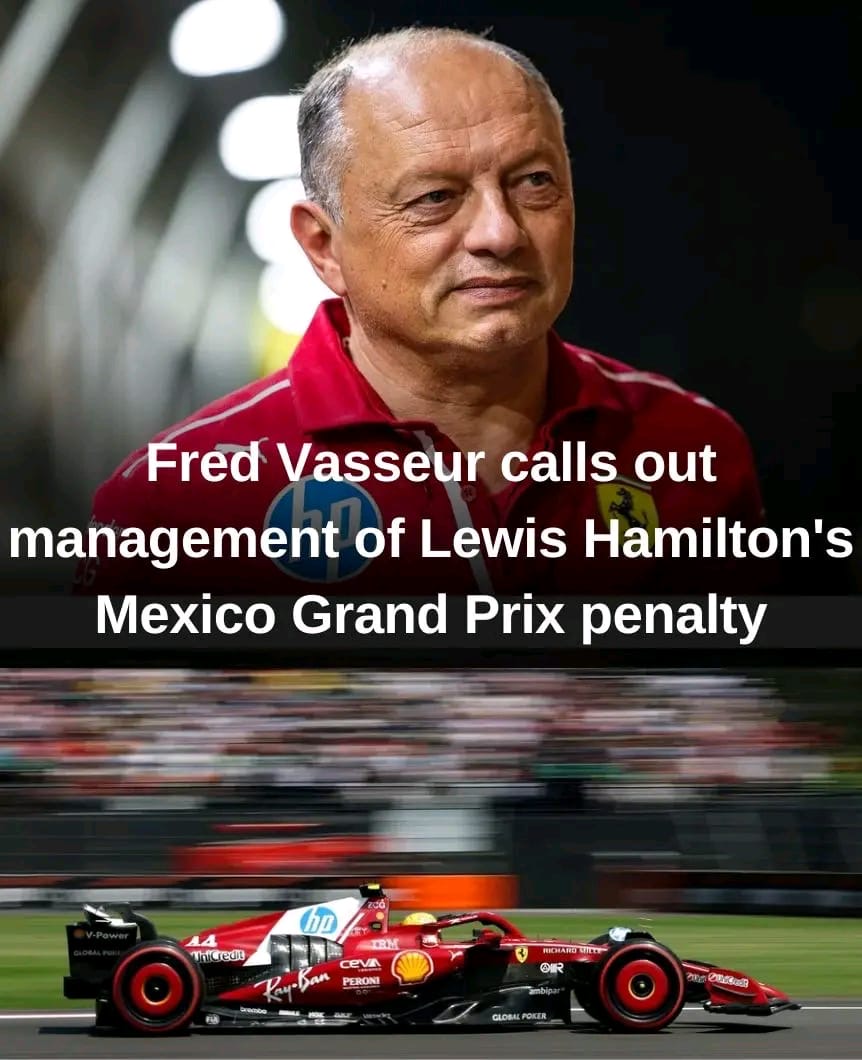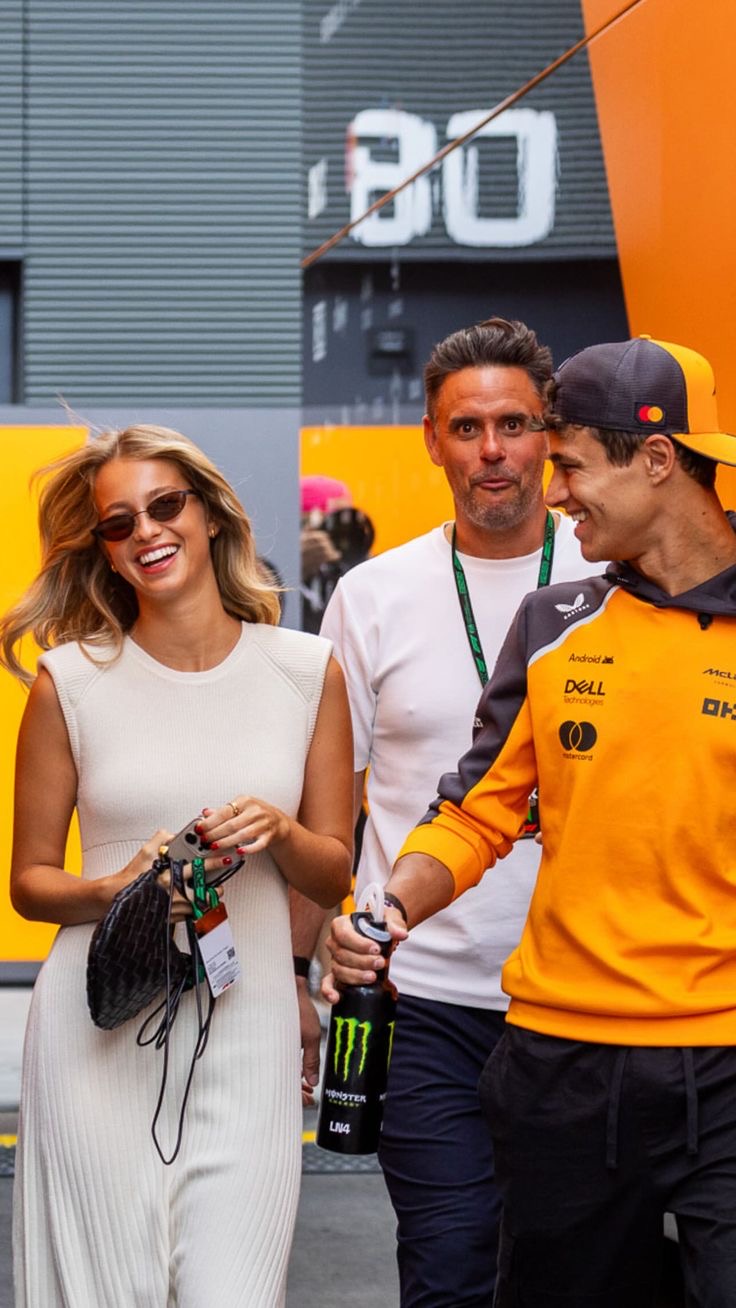Ferrari team principal Fred Vasseur has openly criticized the handling of Lewis Hamilton’s 10-second stop-go penalty at the 2025 Mexican Grand Prix, describing it as “very harsh” and “not very well managed.” The penalty, which was issued after Hamilton left the track at Turn 4 and rejoined ahead of Max Verstappen without immediately giving the position back, proved costly for both the seven-time world champion and the Ferrari team. Hamilton had been running strongly inside the top five before the incident, but the penalty demoted him to eighth place at the chequered flag, wiping away what could have been one of his strongest results since joining Ferrari.
The controversy began early in the race when Hamilton and Verstappen went wheel-to-wheel through the first sector. In the battle for position, Hamilton ran wide over the grass at Turn 4 and rejoined ahead of the Red Bull driver. While Ferrari argued that Hamilton did not gain a lasting advantage because Verstappen was close behind, the stewards saw it differently and issued one of the harshest penalties in recent memory—a 10-second stop-go sanction. This immediately drew outrage from both Hamilton and the Ferrari camp, who felt the punishment did not fit the incident.
Speaking after the race, Vasseur made his frustration clear. “Ten seconds… I don’t remember when someone took 10 seconds,” he said. “It’s very, very harsh and, to be honest, not very well managed.” The Frenchman went on to question the consistency of the decision, pointing out that Verstappen himself had cut the chicane earlier in the race without any penalty being applied. “If you have the global picture, you’ll see Max also cut the corner before. It’s not very well managed, honestly,” Vasseur added, implying that the stewards failed to apply the rules evenly between the two drivers.
The Ferrari boss also stressed that the context of the race should have been taken into account. The high altitude of Mexico City makes overtaking extremely difficult due to thinner air and lower engine performance, meaning that losing track position because of a penalty has an even greater impact than at most circuits. “Because you are in Mexico, you have to understand what you are doing. We dropped positions we could not recover because you can’t overtake,” Vasseur said, highlighting how the sanction essentially destroyed Hamilton’s race.
For Ferrari, the outcome was a significant blow. The team had entered the weekend with high hopes after strong qualifying pace, and Hamilton’s early aggression put him in contention for a top-four finish. Instead, the penalty not only cost them valuable points but also deepened concerns about the consistency of race officiating—a topic that has long divided the Formula 1 community. Hamilton himself, visibly frustrated, called the decision “pretty nuts” in his post-race interview, emphasizing that he had done his best to avoid contact and rejoined safely. The veteran driver argued that the stewards should have taken into account his intention rather than focusing solely on the technical breach.
Vasseur’s remarks reflect a growing sentiment within the paddock that Formula 1’s penalty system lacks balance. Over the past few seasons, several high-profile incidents have led to debates about whether penalties are being applied too strictly or too inconsistently, depending on the driver or the team involved. Ferrari has been particularly vocal this season about perceived inconsistencies, and Vasseur’s comments suggest that patience may be wearing thin.
The bigger implication of this penalty extends beyond just one race. Ferrari, currently battling for second in the Constructors’ Championship, lost crucial points in Mexico, while Hamilton’s hunt for his first podium with the team continues. Every lost finish matters in such a tight battle, and a questionable penalty can have ripple effects on morale, momentum, and strategy for the remaining races.
As of now, Ferrari has not indicated whether it will formally appeal the penalty, but Vasseur’s public criticism ensures the issue will not disappear quietly. It also puts pressure on the FIA to provide further clarification on its decision-making process, especially when similar incidents in recent races have gone unpunished. For Hamilton, the frustration is another reminder of how unpredictable his Ferrari journey has been so far—flashes of brilliance overshadowed by moments of misfortune and contentious calls.
The Mexico Grand Prix may have ended with Verstappen celebrating yet another victory, but for Ferrari and Hamilton, the lingering story remains the one of a penalty that changed everything. As Vasseur put it, “We deserved more today. It wasn’t well handled, and it cost us.” With several races still to come, Ferrari will hope the stewards’ management improves, ensuring that what happens on track determines the results—not decisions made behind closed doors.








